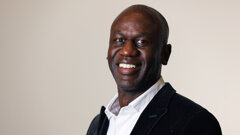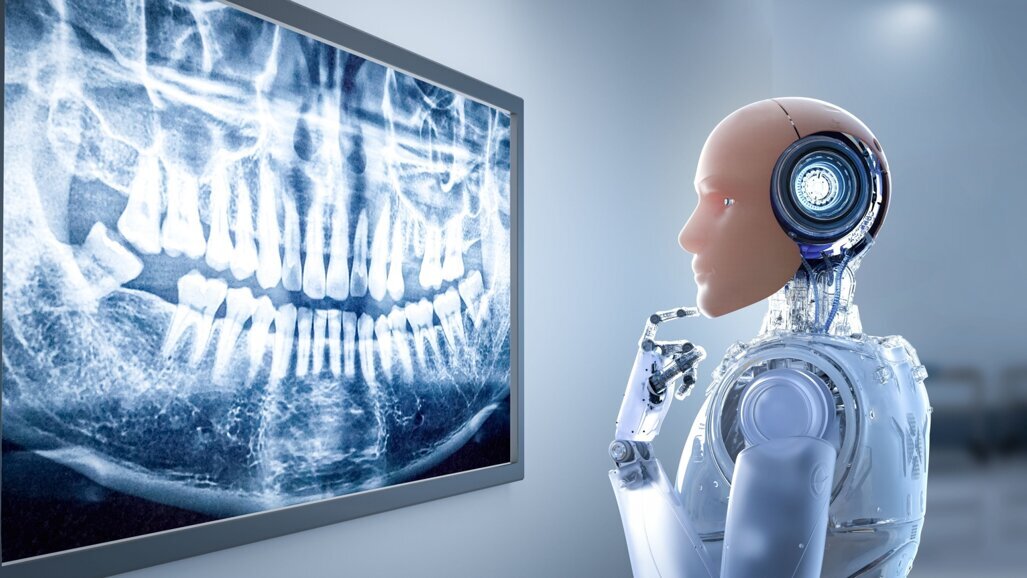I will be speaking on the topic of artificial intelligence (AI) and dentistry at the British Dental Conference & Dentistry Show (BDCDS) in Birmingham, taking place on 17 and 18 May. In this article, I would like to share my thoughts on the impact of AI on the dental profession and explore potential advantages of integrating AI into dental practices.
I would like to begin with a quotation from an article by Dental Tribune International published in late March: “The passing of the EU’s Artificial Intelligence Act (AI act) on 13 March marks a pivotal moment in the regulation of AI technologies, holding profound implications for various industries, particularly healthcare.” The article drew my attention, as it coincided with a number of emails and social media posts inviting me to learn more about the role of AI in dentistry at various webinars and conferences. Clearly, the subject is topical across the dental landscape.
Before looking into possible future applications of AI in dentistry, I would like to go back in time to Manchester in 1975—49 years ago!—when I was an office administrator for an insurance company in the North West England city centre. One fateful day that summer, we were called into a team training session for a demonstration of a new computer-guided administration system. On beige-coloured desktops that looked like a cross between our television at home and a child’s pram without the wheels, we were introduced to GLADIS (General and Life Assurance Data Information System I think)—is it not interesting that, even then, hardware developers were inventing acronyms to humanise their boxes? On a small black screen, a fluorescent green cursor gently pulsed, waiting for an operator to start punching a clunky keyboard.
After a morning watching experienced head office personnel typing away at data entry, we withdrew to a local pub—the Sir Ralph Abercromby (still there today)—and discussed our observations over a ploughman’s lunch and a pint. I will never forget the comment from one of our sales representatives, Martin Bracegirdle, who had been press-ganged into the training session: “Computers will never replace people in business.”
Quite apart from his Dickensian surname, which might have betrayed an ancestral reluctance to change, Bracegirdle was not impressed by the technology. Looking back from half a century later, I think it is fair to say that he was rather like Canute the Great, King of England in the eleventh century, willing the waves of progress to reverse and getting wet feet. This experience was a precursor to a lifetime of listening to technology laggards, who at every stage of digital evolution have predicted either rejection (“that will never work”) or doom (“just you wait, the millennium bug will close us all down”).
If we re-enter the time machine, US American engineer Gordon Moore predicted back in 1965 that the number of transistors in an integrated circuit would double every two years—and history has proved him correct.
I spoke to a client earlier this week who had just returned from a dental AI conference, and I could hardly get a word in edgeways as he gushed about the many ways AI is driving the dental practice. So, is AI going to revolutionise the way we work and replace people in key moments of a dental patient’s journey? The simple answer is “Hell yes!—and get over it.”
I am writing this article myself by the way—no AI in my writing ever, whether it is my daily blog, monthly newsletter or articles for the media—that is just a matter of personal integrity and, frankly, because I enjoy writing. However, I recognise that, when I am advising my clients to embrace the magic of inbound marketing and to create a wealth of online oral health education to position themselves as the expert in their postcode, I am totally comfortable with AI-written blogs, newsletters and articles (but check the facts).
Let us look into current and future applications of AI in dentistry. At BDCDS, I will be considering these possibilities. I would like to take a low-altitude swoop over the dental AI landscape and get my audience thinking about how they can embrace these potential uses:
- new patient enquiries handled by AI capable of answering initial questions and able to triage the patient to the right clinician;
- calendar management by AI to maximise the productivity of fee-earners and negotiate convenient appointment times for patients;
- initial assessments by AI that will speed up the diagnostic element of patient consultations;
- treatment planning by AI that will combine the sales element of the conversation with precise itemisation of the treatment pathway;
- AI smile design, allowing patients to see a realistic improvisation of their post-treatment appearance and functionality;
- guided implant surgery with AI acting as an autopilot to the clinician and increasing accuracy of placement;
- dental office administration utilising AI to streamline every aspect of financial monitoring;
- AI-driven marketing activities that will automate external, internal and inbound marketing systems; and
- compliance checked by AI regularly to ensure that your team stays in their lane.
For all of that, I can imagine a modern Luddite re-enacting my 70s pub scene, arguing: “AI will never replace people in the business of dentistry or the delivery of clinical dentistry.” Canute was wrong, so was Bracegirdle, and so has every critic or doubting Thomas been ever since. I doubt things are going to change—because everything is about to change. Be prepared.
Topics:
Tags:
BIRMINGHAM, UK: The British Dental Conference & Dentistry Show (BDCDS) has returned to the National Exhibition Centre in Birmingham, promising an ...
Over the past four decades, I have dealt with many stressful situations. A complaint from the National Health Service in my first year of practice, ...
Live webinar
Tue. 3 March 2026
4:00 pm UTC (London)
Dr. Omar Lugo Cirujano Maxilofacial
Live webinar
Wed. 4 March 2026
1:00 am UTC (London)
Dr. Vasiliki Maseli DDS, MS, EdM
Live webinar
Wed. 4 March 2026
5:00 pm UTC (London)
Munther Sulieman LDS RCS (Eng) BDS (Lond) MSc PhD
Live webinar
Wed. 4 March 2026
6:00 pm UTC (London)
Live webinar
Fri. 6 March 2026
8:00 am UTC (London)
Live webinar
Tue. 10 March 2026
8:00 am UTC (London)
Assoc. Prof. Aaron Davis, Prof. Sarah Baker
Live webinar
Wed. 11 March 2026
12:00 am UTC (London)
Dr. Vasiliki Maseli DDS, MS, EdM



 Austria / Österreich
Austria / Österreich
 Bosnia and Herzegovina / Босна и Херцеговина
Bosnia and Herzegovina / Босна и Херцеговина
 Bulgaria / България
Bulgaria / България
 Croatia / Hrvatska
Croatia / Hrvatska
 Czech Republic & Slovakia / Česká republika & Slovensko
Czech Republic & Slovakia / Česká republika & Slovensko
 France / France
France / France
 Germany / Deutschland
Germany / Deutschland
 Greece / ΕΛΛΑΔΑ
Greece / ΕΛΛΑΔΑ
 Hungary / Hungary
Hungary / Hungary
 Italy / Italia
Italy / Italia
 Netherlands / Nederland
Netherlands / Nederland
 Nordic / Nordic
Nordic / Nordic
 Poland / Polska
Poland / Polska
 Portugal / Portugal
Portugal / Portugal
 Romania & Moldova / România & Moldova
Romania & Moldova / România & Moldova
 Slovenia / Slovenija
Slovenia / Slovenija
 Serbia & Montenegro / Србија и Црна Гора
Serbia & Montenegro / Србија и Црна Гора
 Spain / España
Spain / España
 Switzerland / Schweiz
Switzerland / Schweiz
 Turkey / Türkiye
Turkey / Türkiye
 UK & Ireland / UK & Ireland
UK & Ireland / UK & Ireland
 International / International
International / International
 Brazil / Brasil
Brazil / Brasil
 Canada / Canada
Canada / Canada
 Latin America / Latinoamérica
Latin America / Latinoamérica
 USA / USA
USA / USA
 China / 中国
China / 中国
 India / भारत गणराज्य
India / भारत गणराज्य
 Pakistan / Pākistān
Pakistan / Pākistān
 Vietnam / Việt Nam
Vietnam / Việt Nam
 ASEAN / ASEAN
ASEAN / ASEAN
 Israel / מְדִינַת יִשְׂרָאֵל
Israel / מְדִינַת יִשְׂרָאֵל
 Algeria, Morocco & Tunisia / الجزائر والمغرب وتونس
Algeria, Morocco & Tunisia / الجزائر والمغرب وتونس
 Middle East / Middle East
Middle East / Middle East









































To post a reply please login or register